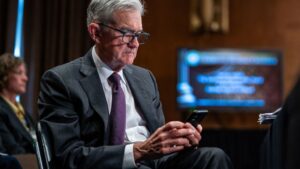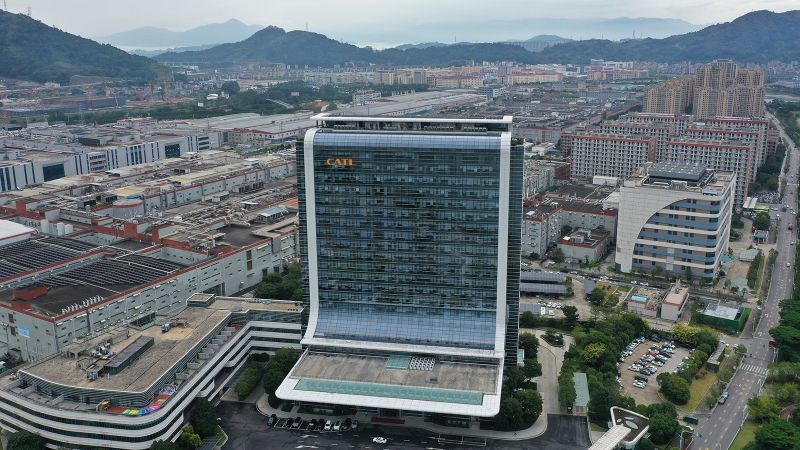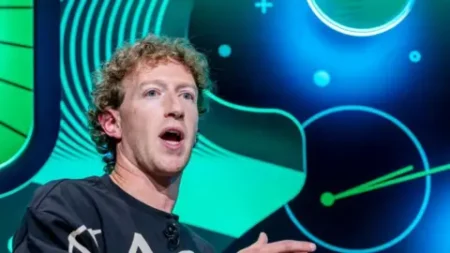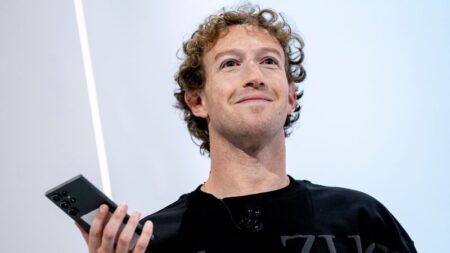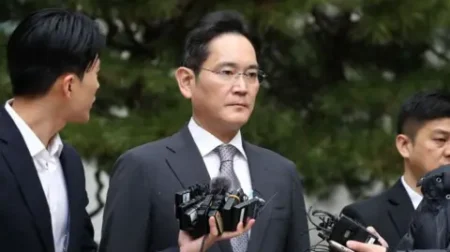China’s Contemporary Amperex Technology Co., Ltd. (CATL), revered as the leading global producer of batteries for electric vehicles (EVs) and a key supplier to Tesla, has taken the significant step of applying for a listing on the Hong Kong Stock Exchange. This move is expected to culminate in one of the largest stock offerings that the city has seen in recent years. According to the reputable news agency Reuters, the battery titan is anticipating a remarkable capital accumulation, aiming to raise at least $5 billion from this listing initiative. This undertaking marks CATL’s second venture into the capital markets, following an impressive initial public offering (IPO) on China’s Shenzhen exchange in 2022, during which the firm successfully garnered $6.7 billion.
Hailing from Ningde, Fujian, CATL stands tall not only as a supplier for Tesla but also boasts partnerships with major automobile manufacturers such as BMW, Volkswagen, and Ford. The company initially revealed its aspirations to list on the Hong Kong Stock Exchange in December of last year, as part of a broader strategy designed to enhance its global presence and influence. The funds raised through this IPO are strategically earmarked to facilitate CATL’s expansion endeavors, particularly in Europe where the construction of a new battery plant in Hungary is a priority, as highlighted in their draft application submitted to the Hong Kong Stock Exchange earlier this week.
While the filing lays out ambitious plans, it conspicuously omits certain key details, including the quantity of shares that will be offered and the aggregate amount to be raised. Additionally, a definitive timeline for the proposed listing has not been disclosed. Reports indicate that CNN has reached out to CATL for further clarification on these matters but remains awaiting a response.
As of the latest available data, CATL operates an impressive network of 13 battery factories globally, with prominent facilities located in both China and Germany. The firm has also announced plans for a collaborative venture in Spain with Stellantis, which is the parent company of the iconic Fiat and Chrysler brands, aimed at establishing another battery production facility. Moreover, CATL is proactively pursuing multiple battery-related projects in Indonesia, showcasing its commitment to extending its global reach.
However, CATL’s aspirations for an offshore listing are not without challenges, set against a backdrop of growing geopolitical tensions. Such climate imposes inherent risks and uncertainties on the company’s operational landscape, including the looming threat of varying tariffs. Notably, while CATL refrained from directly referencing the 10% tariff imposed by former U.S. President Donald Trump on particular Chinese imports, the company acknowledged these potential challenges within its filing.
In a recent development that adds another layer of complexity, the Pentagon placed CATL on its blacklist, labeling the company as one linked to the Chinese military. This designation consequently restricts CATL from engaging in Department of Defense contracts. Responding to this classification, CATL labeled it a “mistake” and expressed an intention to actively engage with the Department of Defense to rectify the misunderstanding. The company emphasized that this designation does not impede its business operations with other entities apart from a few U.S. government authorities, portraying limited substantial adverse effects on its overall operations.
CATL continues to hold a commanding presence in the global battery supplier market, having captured the title of the world’s largest electric battery supplier for an astounding eighth consecutive year in 2024. SNE Research, a well-regarded market analysis firm, reported that CATL possesses a remarkable 38% share of the global battery market. By late last year, CATL’s batteries powered approximately one in every three electric vehicles worldwide, translating to around 17 million vehicles.
In terms of financial health, CATL reported revenues of 400.9 billion yuan (approximately $54.8 billion) for 2023, further achieving 259 billion yuan (about $35.4 billion) in the initial three quarters of the previous year. Despite the withdrawal of several foreign companies from China amid escalating geopolitical tensions and a struggling domestic economy, some automakers are consequentially ramping up their investments in what remains the world’s largest auto market.
On a related note, notable players in the industry are advancing their commitments to the Chinese market, exemplified by Tesla’s ongoing developments. Earlier this week, the electric vehicle giant officially commenced production at its battery manufacturing facility situated in Shanghai, as reported by China’s state-run Xinhua News Agency. This facility is strategically located next to Tesla’s electric vehicle manufacturing site in the city. Meanwhile, other automotive giants like Toyota are also multiplying their investments; the company recently announced plans to establish a wholly-owned subsidiary focused on producing electric vehicles and batteries under its Lexus brand in Shanghai, with production slated to kick off by 2027.

